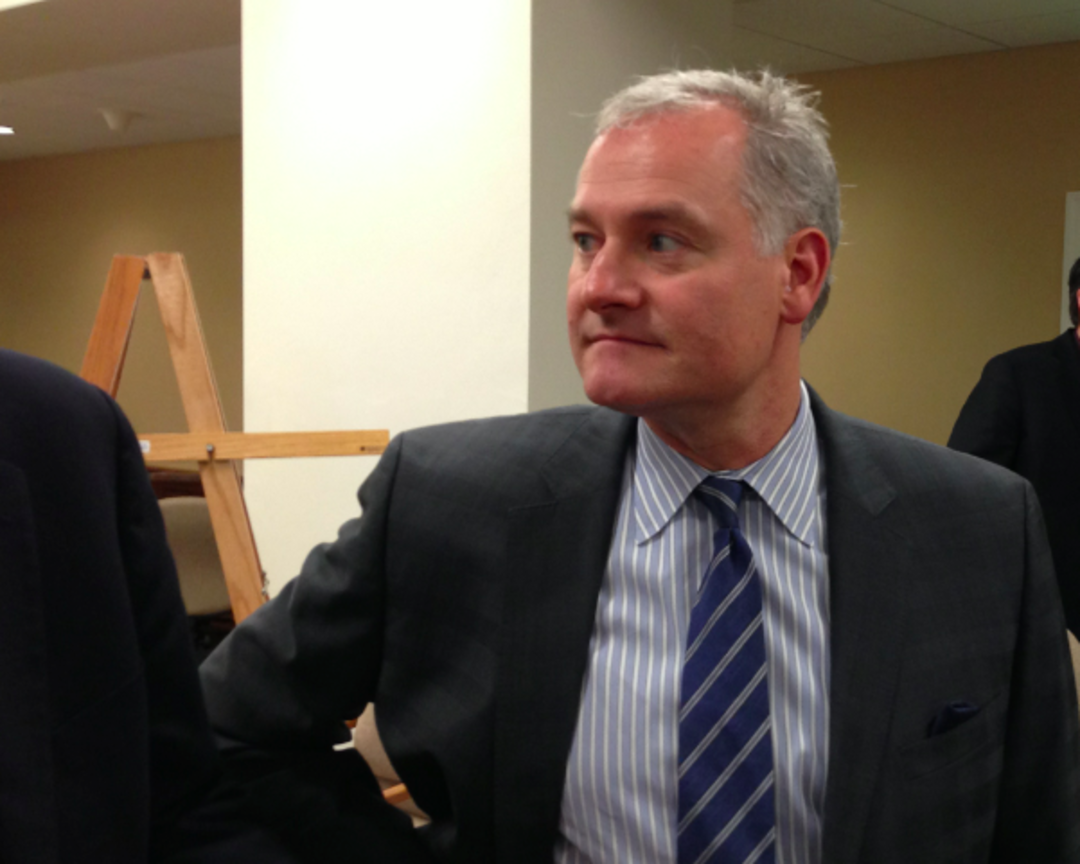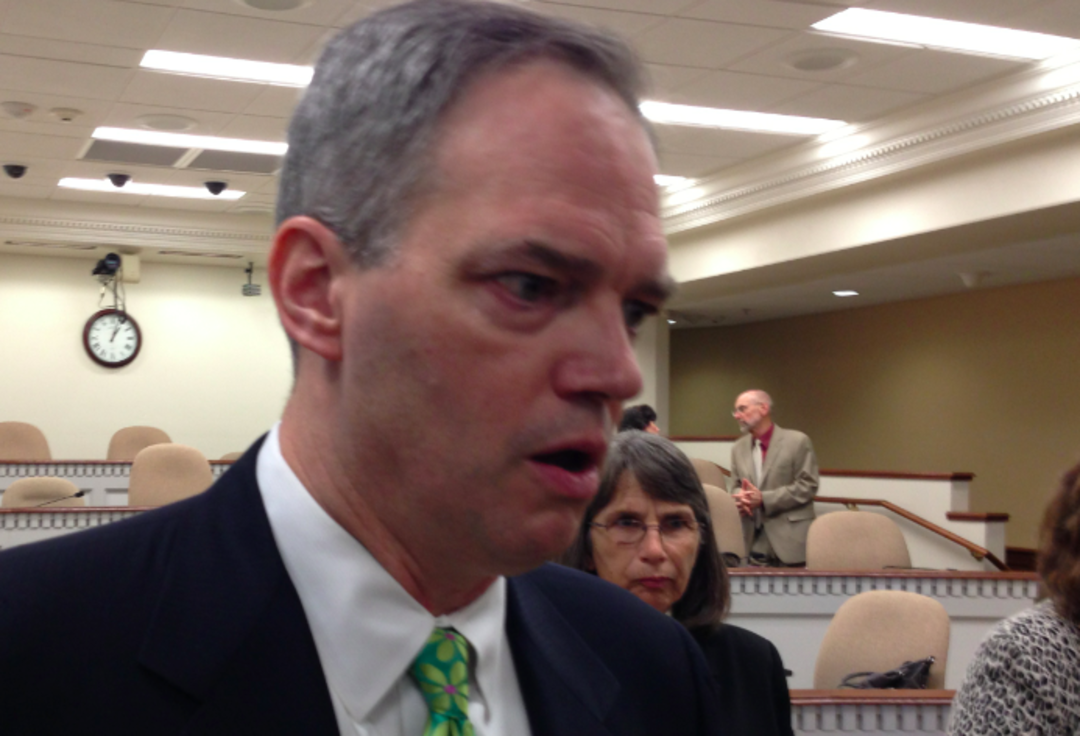Democratic House Budget Goes After $500 Million in Tax Loopholes
Democratic house budget leaders released their budget proposal today. It includes $1.3 billion in increased K-12 spending to meet the mandate of the Washington State Supreme Court McCleary ruling, which ordered the state to spend more—approximately $1 billion to $1.4 billion—on basic education. The Senate Republicans proposed $1 billion in additional K-12 spending when they released their budget last week.
Besides the $300 million more the Democrats are putting toward education, the biggest difference between the budgets—and Democratic budget leaders were happy to point this out today—was where the money comes from. The Democrats are going after 15 tax breaks worth half a billion dollars that house finance chair Rep. Reuven Carlyle (D-36, Queen Anne) said "couldn't justify a return on investment for taxpayers if they tried."
The Republican budget, Carlyle also pointed out, creates 11 new tax breaks.

Rep. Reuven Carlyle/photo by Josh Feit
Carlyle, who's been beating the tax breaks drum for years, went on to trash the whole exemptions process, saying it was time to apply "the same line by line rigor to both sides of the ledger" pointing out that while the legislature debates program spending every budget cycle, it looks the other way when it comes to tax breaks. "It's a new era. We're expecting and demanding a new level of rigor for tax breaks."
Carlyle said that the legislature has created 277 new tax exemptions worth $3.6 billion since 1995 (he didn't also note, though, that the Democrats have been in control for most of that time). The grand total now, he said, is 640 tax exemptions worth "tens of billions."
Carlyle said that some of them made sense, but concluded: "Here's the deal: Let's acknowledge as a state that in some cases the money from tax breaks would deliver better value, a better return on investment, by investing in kids and families, schools and universities."
Taking his cue from the Joint Legislative Audit Review Committee (JLARC), which reviews tax breaks, along with the the citizen commission that oversees JLARC's work, Carlyle proposed closing or narrowing tax breaks including: repealing a tax break on bottled water ($51.5 million); repealing a preferential rate for stevedoring ($27.7 million); repealing an oil industry tax break ($40.8 million); and repealing a high-tech sales and use tax deferral ($55.5 million). Microsoft, Carlyle notes, has received $145 million in tax breaks over the last 17 years.
Rep. Ross Hunter (D-48, Medina) the Democrats' budget guru (the appropriations chair), who's banking on Carlyle's tax exemption spring cleaning to fund his $34.5 billion budget, seconded Carlyle's logic: "You've got to make a decision. What's more important? One of these tax breaks or funding early learning for kids?"
Hunter's budget also makes permanent a temporary beer tax and temporary B&O surcharges on professional services, for about $700 million. And, like the Republicans, his budget suspends voter-approved I-732 (a cost of living increase for teachers), worth $324 million (though he doesn't take that money out of the general fund like the GOP does). And he banks on a drop in caseloads in programs for the working poor (though, unlike the GOP, he specifically earmarks the money for investment back into the same program, and he doesn't use the decline in caseloads as an opportunity to impose a new cap, as the GOP budget does.)
Of course, the Republicans' were happy to hype the difference between their proposals as well, criticizing the Democrats for relying on new revenue.
Sen. Mike Hewitt (R-16, Walla Walla) said:
This was a missed opportunity for the majority party in the house to show that they’re listening to the citizens of our state who have been clear about their lack of appetite for new taxes. This proposal strikes me as tone-deaf, and quite frankly, largely dead-on-arrival for the purpose of budget negotiations.
Like the governor’s budget proposal, the House asks recession-battered businesses and families across the state to make major sacrifices without requiring the same from state government. Despite the fact that our state is projected to receive more revenue than any time in history in the coming budget cycle, they want an additional $1.3 billion. They’ve been banging the drum for more taxes for years now and the public hasn’t joined the chorus. When will they get the hint?
By passing a bipartisan senate budget last week that didn’t rely on tax increases – and still increased K-12 education funding by $1.5 billion – we showed that there’s a responsible way to live within our state’s means. I’m disappointed that my colleagues in the House didn’t make an attempt to do the same.

Rep. Ross Hunter/photo by Josh Feit
Hunter, however, says the senate budget actually relies on hundreds of millions in amorphous savings such as $157 million unspecified efficiencies.
"If you want to cut something," Hunter says of the GOP budget "you actually have to say what it is you're going to cut. It's hard to figure out how you negotiate with a cloud of unspecified reductions," he said.
Reconciling the two budgets is now the final business as the legislative session heads toward the April 28 deadline.




